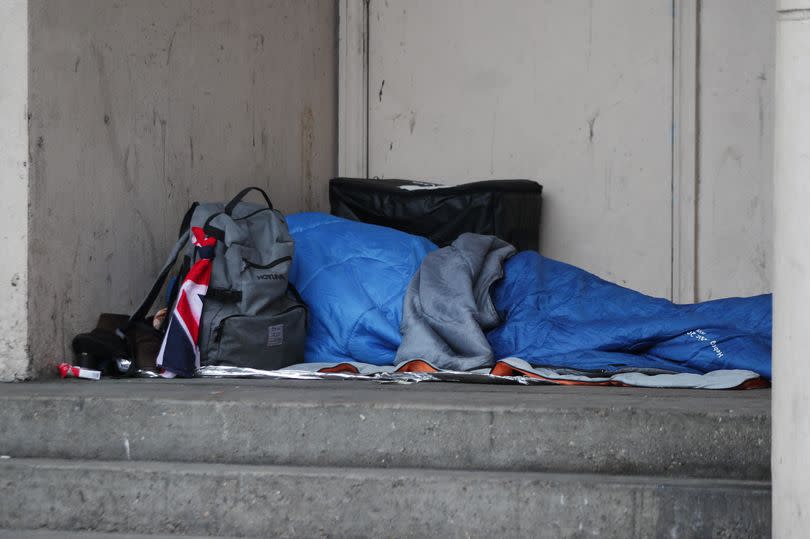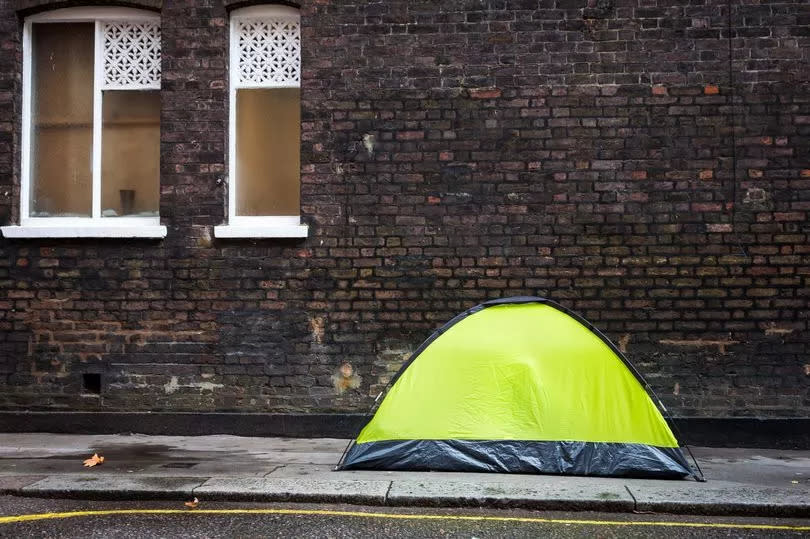More than 150 Hounslow refugee households at risk of homelessness

In Hounslow, more than 150 refugee households faced homelessness in the last quarter of 2023, new figures show. The number of asylum seekers living in temporary housing has risen significantly over the past year throughout England, prompting a refugee charity to label the increase as "tragic yet predictable".
New data from the Department of Housing, Levelling Up and Communities indicates that in Hounslow, 159 households in supported asylum accommodation had received support from the council for being homeless - known as homelessness duties - in the final quarter of 2023.
This figure includes nine households under 'prevention' duties, meaning they are at imminent risk of homelessness, and 150 households already classified as homeless under 'relief' duties.
READ MORE: Surge in London rough sleepers sees 'humanitarian crisis' on streets

In contrast, there were no recorded cases of homeless refugee households during the same period in 2022. Nationally, approximately 5,800 refugee households received council help under homelessness duties towards the end of 2023, a stark rise from just 1,390 the previous year.
Enver Solomon, CEO of the Refugee Council, stated that the surge in homelessness among refugees was the "tragic yet predictable consequence of a dysfunctional system". Refugees currently have 28 days to transition to regular benefits after their refugee status is granted, but Mr Solomon argues that expecting someone to find stable housing and income within that time is "simply unrealistic", often leaving refugees without homes.
"The day they are granted refugee status should be a day of immense relief and celebration. But it's not, because by giving people such a limited time to start anew, the risk of becoming homeless and destitute is felt immediately." Mr Solomon called on the Government to collaborate with local councils to increase the 'move-on' period to 56 days.
In London alone, there were 1,420 homeless refugee families, a significant jump from 300 the previous year. The North West closely followed, with 1,210 cases. A spokesperson for the Local Government Association commented: "Councils continue to see growing demand for housing advice and support as they process a backlog of claims from those seeking asylum."
They highlighted that due to housing shortages, individuals leaving asylum accommodation face difficulties securing permanent homes, and expressed a desire to work with the Government to improve the system for housing asylum seekers.
The spokesperson continued: "This requires a national, regional and local approach to solving pressing housing needs across all schemes that welcome new arrivals to the UK. Councils do not receive funding for people whose asylum claim has been granted and also need urgent confirmation of the funding available for their role in asylum for 2024-25."
A government spokesperson clarified that the 28-day period for refugees to find new accommodation doesn't start until they receive their biometric residence permit, potentially extending their time beyond the initial 28 days after being granted refugee status.
The spokesperson added: "Support is also available through Migrant Help and their partners, which includes advice on how to access Universal Credit, the labour market and where to get assistance with housing. We are working to make sure individuals have the support they need following an asylum decision, and to help local authorities better plan as we reduce the number of asylum seekers awaiting a decision."
Don't miss out on the biggest West London news. Sign up to our MyWestLondon newsletter HERE for all the latest daily news and more.

 Yahoo News
Yahoo News 
